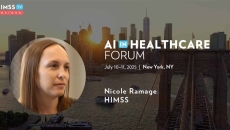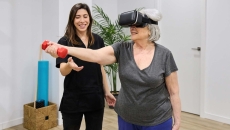Data and Information
The tech giant's SensorLM analyzes data from wearables to provide personalized insights into how everyday life affects one's body.
HHS strategic advisor Amy Gleason said CMS wants patients to have the ability to scan a QR code at the doctor's office and share their medical history.
If organizations are more transparent with clinicians and patients about AI adoption and deployment, stakeholders would feel more secure with it, says Nicole Ramage, senior market insights manager at HIMSS.
The funding comes a year after the company secured $70 million in a Series B funding round.
Researchers at Johns Hopkins found that the AI outperformed current clinical guidelines with 89% accuracy across all patients and a 93% accuracy rate for individuals ages 40 to 60.
While most provider and payer organizations are using some form of AI, very few are getting demonstrable value at scale across the enterprise, says Tom Lawry, managing director of Second Century Tech.
Also, a project developing an AI-powered application for preventing cognitive decline among seniors has won a $2 million grant from the New Zealand government.
Also, OMRON in Singapore has launched a new medical device plan featuring AI-driven recommendations for self-management of chronic diseases.
Users of XRHealth's immersive therapeutic platform will be able to receive real-time movement analysis feedback during rehabilitation.
Healthcare organizations are vulnerable to cyberattacks like phishing scams during IT upgrades and business restructuring. Security awareness is important during any changes, says Ven Auvaa, ArmorPoint's information security director.








